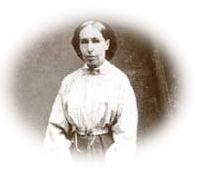Dear Mother, — I seize five spare moments for you, as I have not written for three days. Last night we half filled this ship with the worst cases from the shore hospital. She will probably fill up to-day from the “Elm City,” and sail to-morrow. The men are mostly very sick, but no deaths occurred last night. Oh! what stories I shall have to tell you one of these days. Instances of such high unselfishness happen daily that, though I forget them daily, I feel myself strengthened in my trust in human nature, without making any reflections about it. Last night a wounded man, comfortably put to bed in a middle berth (there are three tiers, and the middle one incomparably the best), seeing me point to the upper berth as the place to put a man on an approaching streteher, cried out: “Stop! put me up there. Guess I can stand h’isting better ‘n him.” It was agony to both.
There is great discussion among the doctors as to the character of the fever; some call it typhoid, others say it is losing that type and becoming malarial remittent. It matters little to me what it is; the poor fellows all look alike, — dry, burned-up, baked, either in a dull stupor or a low, anxious delirium. They show little or no excitement, but are dull, weary, and sad. The percentage of sickness is thought to be small for an army on the march through such a region.[1]
We are all well, and cheerful now that our work begins once more. Idleness depressed us a little. We now have over one hundred very sick men on board. Mrs. Griffin and I have just finished our morning’s work below; Mrs. M. and Georgy have taken our places, and we have come on deck for a mouthful of fresh air. This morning, before I was up, I heard a crash and a cry, and the bowsprit of a large vessel, which the tide had swung upon us, glanced into the port-hole at the foot of my bed, tore through the partition, and, I believe, demolished the berth on the other side of it. The captain, who takes great pride in his ship, and has employed these leisure days in getting her painted, is now leaning over the side, looking at the defaced and splintered wood-work with a melancholy air.
Good-by. Called off.
[1] The death-rate of the British forces during the first year of the Crimean War was: July, August, September, 1854, 293 per 1000 men; October, November, December, 511 per 1000 men; reaching in January, 1855, the fearful rate of 1174 per 1000 men, of which 97 per cent was from disease, — in other words, a rate at which it would be necessary to replace a dead army by a living one in 10¼ months. Then it was that the British Government established sanitary operations; and as soon as their influence was felt — May, June, July, 1855 — the death-rate fell to 250 per 1000, and from that time rapidly diminished, till in January, 1856 (one year from its culmination), it was 25 per 1000 men. The mortality of the United States army during the campaign in Virginia of 1862 was 165 per 1000 men. To what was this difference owing? Not to the fact that our troops brought a greater amount of health into the service, for their mortality during the preceding period of inaction was much greater than that of the British army during a like period. It was owing in part, undoubtedly, to lessons learned from the Crimean War; but it was also in a great degree owing to the Sanitary Commission, to its careful inspection of recruits, camps, regiments, and to the advice which the military authorities so wisely allowed it to give on all sanitary and hygienic subjects to the regimental commanders. Surely the Commission has a right to point to the comparatively small mortality of our forces (small when we consider the nature of the climate and the unseasoned condition of volunteers), and claim a part, at least, of the credit of it.



